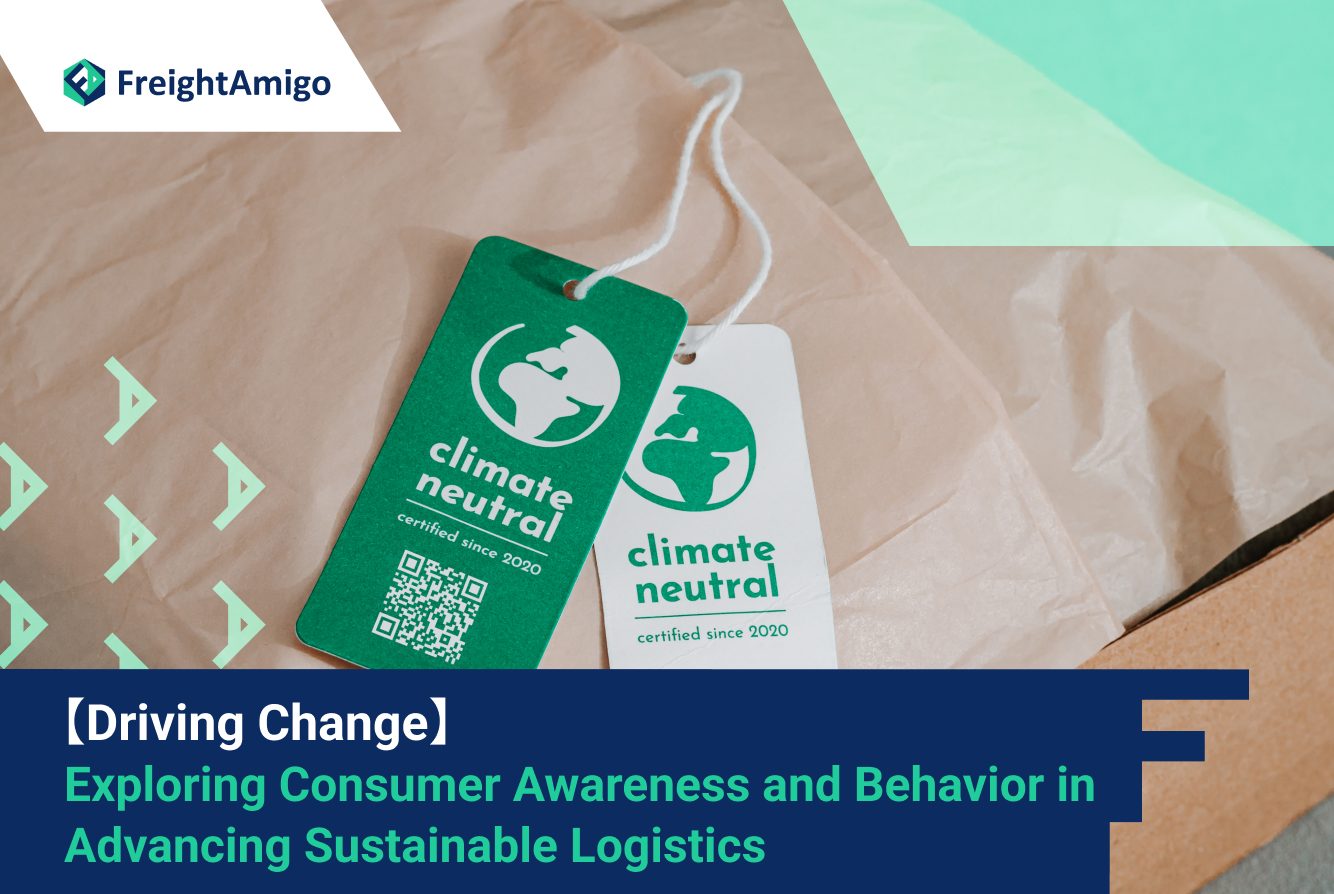Author Name: Tiffany Lee – Marketing Analyst at FreightAmigo
In the contemporary world, sustainability has become a pivotal concern for consumers. As we dive into this comprehensive analysis, we will explore consumer awareness and behavior in sustainable logistics. Our focus will be on understanding the evolving landscape of consumer buying behavior, the influence of sustainability, and the different demographic responses to sustainable practices.
Want To Compare The Best Express, Air Freight, Sea Freight, Rail Freight & Trucking Rates So As To Have Better Control On Cost?
The Growing Influence of Sustainability on Consumer Behavior
In the past few years, a significant shift has been observed in consumer buying behavior. This shift is largely influenced by the growing concern for sustainability.
“Consumer trends in 2020 suggest that concerned consumers are adopting a variety of measures to shop and live more sustainably.”
Among the most popular lifestyle changes, cutting down on single-use plastics was embraced by over two-thirds of respondents. Shopping for brands with environmentally sustainable values followed closely, as did reducing overall spend on new items, and the consumption of meat and animal-based products.
Environmental and Ethical Practices
Over a third of consumers also value ethical practices in the products and services they buy. As concern about climate change continues to grow, approximately 1 in 5 are opting for low-carbon transport, switching to renewable energy, or cutting back on the number of flights they take.
Demographic Differences in Sustainability Engagement
Understanding the variations in sustainability engagement among different age groups is crucial. Analysis shows that Younger Millennials are the most engaged, while Gen Z is least engaged in environmental issues. However, supporting ethical brands matters more to Gen Z.
Older Millennials, Gen X, and Baby Boomers — covering the population from 31 to 74 — are all similarly engaged with sustainability issues. Pre-Boomers are the least engaged demographic.
Barriers to Sustainable Shopping
Identifying and understanding the obstacles to sustainable shopping can reveal why some demographics engage more readily than others. The most significant hurdles include the inconvenience of cutting back on single-use plastics, lack of interest, and the perception of ethical or environmentally friendly brands as expensive.
“If we were to highlight one perceived barrier to the growth of sustainable and ethical brands, it would have to be affordability.”
Affordability and Sustainable Shopping
Affordability is a significant barrier to the adoption of sustainable and ethical brands. Research shows that consumers with a household income of over £50k are most engaged with the idea of sustainable shopping. However, lower income groups are more inclined towards cutting back on air travel and buying less overall.
Influence of Sustainability on Purchase Decisions
Consumer trends reveal that sustainability is a key consideration for various consumer segments when making their purchase decisions. However, convenience and cost continue to rank highly.
Understanding Consumers’ Attitudes to Sustainability
Understanding consumers’ attitudes to sustainability is vital for fostering constructive changes that align the demand side of the sustainability equation with the supply side.
“Our latest research shows that consumers continue to become more environmentally conscious. However, given inflationary pressures, the increasing adoption of sustainable lifestyles may be more about saving money than saving the planet.”
The Role of Businesses in Accelerating Sustainability
Companies from every industry are facing increasing calls to play a greater role in accelerating the transition to more sustainable business practices. As they do so, they need to manage the risks and seize the opportunities created, from enhanced reputation and new revenue streams, to better risk management and business continuity.
Social Subconscious and Consumer Behavior
Recent psychological research has shown that social labeling, the tag society gives a particular behavior to make sense of it, can significantly influence consumer behavior.
“When a behavior is labeled in this way, the consumer is likely to behave next time in keeping with this label.”
Conclusion
Understanding consumer awareness and behavior in sustainable logistics is crucial in the current era of sustainability. It helps businesses align their strategies with consumer preferences, ultimately leading to business growth and a more sustainable future.
There Are Different Options For Cargo Transportation. If You Want To Choose The Most Convenient And Suitable Solution, It Is Best To Have The Full Support Of Logistics Experts! If You Are Planning To Ship Goods Overseas, Please Go To The FreightAmigo Page For Inquiries.
===
Read More:
Creating A Sustainable Business: The Power Of ESG Engagement And Stakeholder Collaboration
【Future is Green】 Embracing Sustainable Packaging and Logistics for a More Eco-friendly World
===
If you have any inquiries on logistics/supply chain, feel free to contact FreightAmigo now:
Chat with us online OR
Phone : +852 28121686
WhatsApp: +852 27467829









































